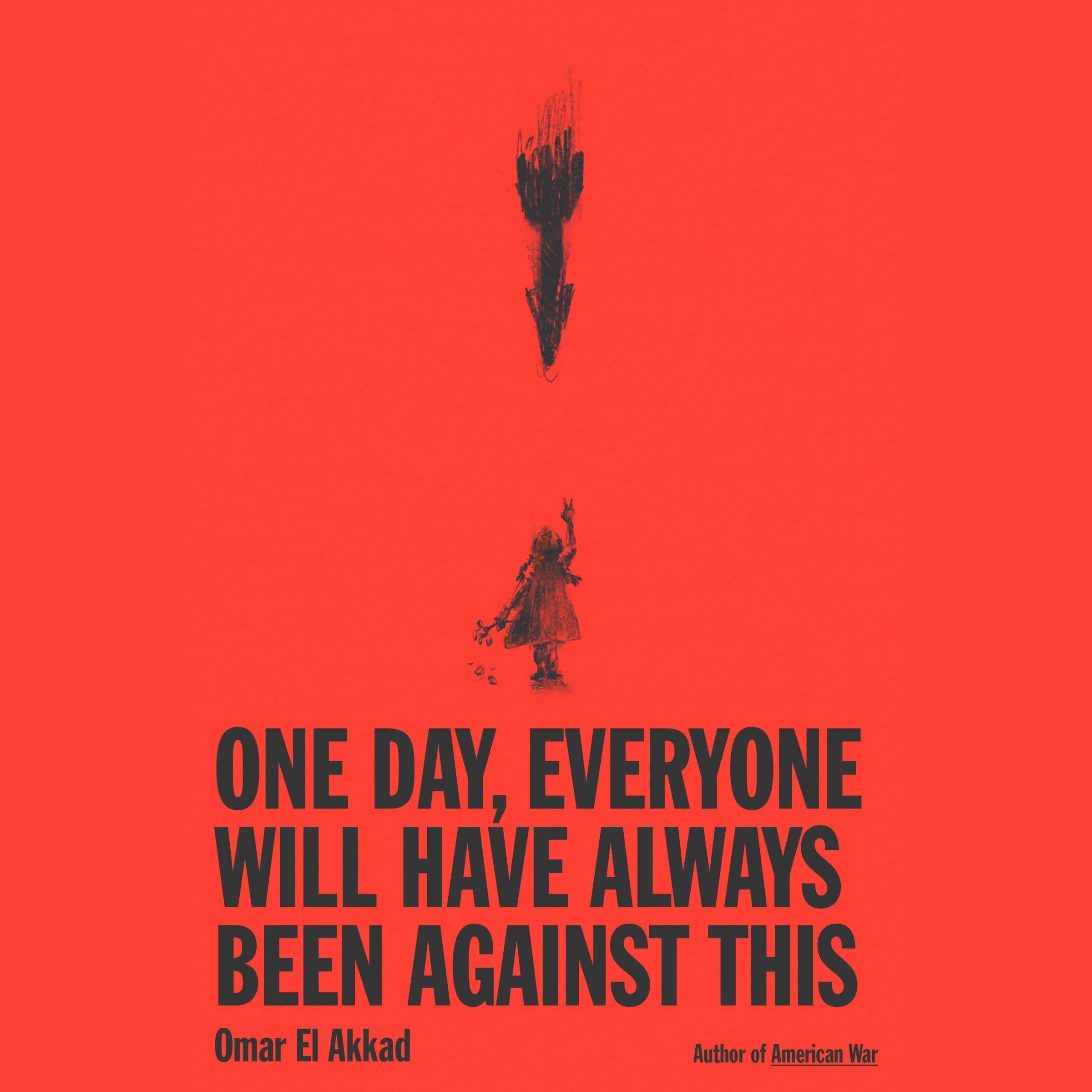What do you think?
Rate this book


Audiobook
First published February 25, 2025
it is an admirable thing, in a politics possessed of a moral floor, to believe one can change the system from the inside, that with enough respectful prodding the establishment can be made to bend, like that famous arc, toward justice. but when, after decades of such thinking, decades of respectful prodding, the condition one arrives at is reticent acceptance of genocide, is it not at least worth considering that you are not changing the system nearly as much as the system is changing you?the third of omar el akkad's books (following two award-winning novels), one day, everyone will have always been against this is an incisive, trenchant work about colonialism, slaughter and mass murder, western liberalism, state violence, hypocrisy, amorality, cowardice and privilege, apathy, institutional fealty, and, pardon the redundancy, the inherent effects of empire. with sharp, scathing, and often sardonic critique, el akkad reckons with the ongoing atrocities in gaza (and other assorted moral malfeasances), as well as the international, governmental, political, and organizational indifferences that de facto enable (if not outright support) their continuation.
the moral component of history, the most necessary component, is simply a single question, asked over and over again: when it mattered, who sided with justice and who sided with power? what makes moments such as this one so dangerous, so clarifying, is that one way or another everyone is forced to answer.with unflinching clarity, moral resolve, historical contextualization, and a reliance on logic, reason, and basic human decency, el akkad's writing recalls the most potent works of chris hedges (both authors have spent time as war correspondents). one day, everyone will have always been against this braids the philosophical and the personal, with el akkad relating anecdotes and asides both from his days reporting overseas and more recent ones as a new father. el akkad writes far too beautifully for so sorrowful a subject — juxtaposing massacres, indignation, heartbreak, and anguish in language that persuades and entreats as it denounces. this is a work of courage and rectitude and virtue of the highest order, absolutely merciless in its calling to account.
one day there will be no more looking away. looking away from climate disaster, from the last rabid takings of extractive capitalism, from the killing of the newly stateless. one day it will become impossible to accept the assurances of the same moderates who say with great conviction: yes the air has turned sour and yes the storms have grown beyond categorization and yes the fires and the floods have made of life a wild careen from one disaster to the next and yes millions die from the heat alone and entire species are swept into extinction daily and the colonized are driven from their land and the refugees die in droves on the borders of the unsated side of the planet and yes supply chains are beginning to come apart and yes soon enough it'll come to our doorstep, even our doorstep in this last coddled bastion of the very civilized world, when one day we turn on the tap and nothing comes out and we visit the grocery store and the shelves are empty and we must finally face the reality of it as billions before us have been made to face the reality of it but until then, until that very last moment, it's important to understand that this really is the best way of doing things.
“What power assumes, ultimately, is that all those who weren’t directly affected by this, who only had to bear the minor inconvenience of hearing about these deaths from afar, will move on, will forget. Tomorrow more Palestinians will die, but in the places where the bombs are built and launched it will have no bearing on mortgages, bills, employment. Indeed, in many of these places, what will have a real economic effect is if the bombing stops. ... Tomorrow more Palestinians will die, but the unsaid thing is that it is all right because that’s what those people do, they die. Just for a moment, cease to believe that this particular group of people are human.”
No, there is no terrible thing coming for you in some distant future, but know that a terrible thing is happening to you now. You are being asked to kill off a part of you that would otherwise scream in opposition to injustice. You are being asked to dismantle the machinery of a functioning conscience. Who cares if diplomatic expediency prefers you shrug away the sight of dismembered children? Who cares if great distance from the bloodstained middle allows obliviousness. Forget pity, forget even the dead if you must, but at least fight against the theft of your soul.